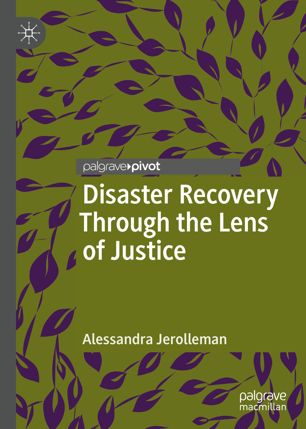

Most ebook files are in PDF format, so you can easily read them using various software such as Foxit Reader or directly on the Google Chrome browser.
Some ebook files are released by publishers in other formats such as .awz, .mobi, .epub, .fb2, etc. You may need to install specific software to read these formats on mobile/PC, such as Calibre.
Please read the tutorial at this link: https://ebookbell.com/faq
We offer FREE conversion to the popular formats you request; however, this may take some time. Therefore, right after payment, please email us, and we will try to provide the service as quickly as possible.
For some exceptional file formats or broken links (if any), please refrain from opening any disputes. Instead, email us first, and we will try to assist within a maximum of 6 hours.
EbookBell Team

5.0
50 reviewsThere has been increased attention to the topics of disaster recovery and disaster resilience over the past several years, particularly as catastrophic events such as Hurricane Katrina and Superstorm Sandy have brought to light the increasing vulnerability of so many communities. This manuscript brings together existing research, along with policy analysis, in order to look at disaster recovery through the lens of justice. This includes understanding the mechanisms through which vulnerability is exacerbated, and the extent to which the regulations and agency cultures drive this outcome. While existing analyses have sought to understand the particular characteristics of both resilient and vulnerable communities, there have been few attempts to understand the systemic inequities and injustice that is built into United States disaster policies, programs, and legislation. This manuscript thus begins from the understanding that social and economic structures, including land use policies and historic practices such as redlining, have concentrated hazard risk into vulnerable zones whose inhabitants do not benefit from the very policies that create and increase their risk.